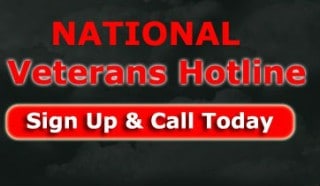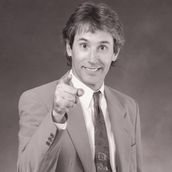 ” Veterans911.com Hotline preparing to Open”
” Veterans911.com Hotline preparing to Open”
by Ken Smith
Truly a remarkable idea. “Veterans Helping Veterans”
“Hot-line seeks volunteers”
A new Veterans nonprofit, “Veterans Workshop” has begun their nationwide recruitment for Volunteers who can assist with answering calls from American Veterans via a new Veterans911 hot-line. This new project has some uniqueness to it and an interesting model to pay for itself said “Bob O’Brien”, one of the directors.
This columnist was walked through the entire concept and shown in detail how the project works and it was explained to me how in the near future, advertising and social media efforts will begin to reach out to Veterans, friends and family of Veterans and even to businesses that employ Veterans showcasing the services that are offered.
Imagine that a Veteran had access to a toll free number that he/she could call, 24/7 and the person on the other end answering the call wasn’t an employee of a government agency, wasn’t someone working for DOD or the VA, but was a committed American, Veteran or non-Veteran, looking to listen and help.
Imagine that the volunteer answering the call had as a resource, a HUGE database of services provided to Veterans. Medical, educational, employment and housing programs along with disability benefits information all indexed by zip code. Then imagine that the volunteer (they call themselves special agents), could, at the conclusion of the call offer to the Veteran the option of joining a “Real Time” conference call with other veterans with similar issues staying on the conference call as long as they wanted.
I asked to see their web offering and they sent me to www.Veterans911.com
After looking around the site, I entered my data as a volunteer, and was given a phone number to call for all new volunteers (202-695-8049). I called the number in DC and got a nice woman who confirmed with me the following:
- I was willing to commit two hours of volunteer time per month to the project
- I was willing to commit two hours of training to the project (One time only)
- I had a computer or smart-phone that I could use to access the knowledge base of information that is passed along
- I would agree to some rules (mostly a disclaimer that alerted each vet that volunteers are not medical personnel or social workers)
- I would pledge to do my best to ensure that each Veteran was treated as a human being first
- I would attempt to recruit one other volunteer (Hence this article)
I was shown behind the scenes where powering this hot-line was a very sophisticated SIP-Trunk PBX phone system. Most likely hosted PBX.
I asked for a tour of that system and was astounded. Seems that all volunteers need to do is to give a primary phone number (In my case my cell), and that is the phone number the system uses to transfer calls to me. I was allowed to pick a shift to volunteer (there was a two hour minimum), and my shift is early morning, 5am to 7am, the second Monday of each month.
It was explained that I would get a preliminary call at 4:55 AM that morning from a robot caller, asking me to confirm that I was actually available to take calls, and by pressing one I would be shown as online and ready to take calls from Veterans.
Veterans calling the hot-line would be sent onto me in a process that also was amazing as Veterans in my State would be sent to me first, and then any call could be sent in order of who was “available”.
After answer the phone, I would confirm some data that each vet has already given (name, address, phone #, email, etc) and I would check some military data (branch of services, status, etc). When I asked why this was needed, I realized how well thought out this idea had been vetted.
“During our Beta” said O’Brien, we started to get calls from kids. Kids under the age of 18, and we looked for a way to fix that issue. The data collected is used by us to assist the Veteran, so when you get your first call as a volunteer, you will see the Veterans name on your computer screen and you can answer the call “Hello Bill” or “Hello Mary” and one thing we have found, is that by telling the Veteran we are NOT the VA or DOD, it makes it easier to get the Veteran to relax, open up and tell us what they need. Most just need someone to talk too.
How you paying for all this? I asked
We solicit sponsors said “O’Brien”. Our costs, including all of our hardware, software and staff equals maybe $0.10 per minute per caller. We have sponsors who donate 10-20-30 and even 50 thousand minutes per month of time, as a tax deductible donation. With each sponsorship, when a vet calls our hot-line they hear “Thank you for calling the Veterans Hot-line, Sponsored by (Insert sponsors name here) then the call is connected to a volunteer.
You run this project with sponsorship money? I was amazed.
Yes we do, and of course as a nonprofit, we take care to Shepard the sponsorship money carefully and squeeze every nickle out we can.
We take donations from small companies to large companies and we accept donations from $5 to people who have donated their car to us. All an all, we keep our overhead low, our staff is small (less than 10) and we are all Veterans ourselves, we know how to make do with very little.
We took an oath NOT to take government money, and we won’t. Period.
Now, there are other interesting aspects of this hot-line and I will write future articles. But in the meantime, if your interested, go to the site www.Veterans911.com and sign up as a Volunteer today. Maybe we will be working the same shift some day.

For more than twenty-five years Ken Smith has been a leading advocate for veterans. A combat Vietnam veteran, Ken served during 1971-72 as a paramedic and an infantry squad leader with Delta Company, 2nd Battalion, 1st Infantry, in the 196th Light Infantry Brigade, Americal Division. After his discharge, Ken continued his work as a paramedic in New England. On the streets of Boston he encountered growing numbers of homeless Vietnam veterans, and he became determined to both assist them and draw attention to their plight.
In 1989, Ken founded the New England Shelter for Homeless Veterans, located in a former VA hospital at 17 Court Street in downtown Boston. One of the first facilities designed for homeless veterans and now a national model, the shelter has served over 35,000 of America’s veterans who, for whatever reason, find themselves living on the streets.
In 1992 Ken was awarded Point of Light #142 by President George H. W. Bush, and later that same year received the AMVETS Silver Helmet Award, considered the “Oscar” for American veterans. As one of America’s foremost veterans service organizations, AMVETS (or American Veterans) has a proud history of assisting veterans and sponsoring numerous programs that serve our country and its citizens. Ken was awarded this honor along with Peter Coors, with whom he still maintains a personal friendship.
Over the years Ken has appeared on many national media programs including Good Morning America, Prime Time Live, ABC News, CBS News, Larry King Live, CNN, 60 Minutes, and The Geraldo Show. He has been quoted in The New York Times, The Washington Post, The Boston Globe, The Los Angeles Times, The Chicago Tribune, The Miami Herald, and numerous international newspapers, magazines, and websites. In 1992, Ken had the distinction of addressing both the Republican and Democratic National Conventions as a keynote speaker on the subject of veterans.
Ken recently left his last assignment with the Military Order of the Purple Heart Service Foundation, where he was the chief technology architect of the Veteran’s Vocational Technical Institute, Purple Heart Car Donation program, Purple Heart Call Center, Purple Heart Radio, Purple Heart Tech Support, Purple Heart Services, and over thirty new Purple Heart websites. Ken Smith provided the vision and has overseen the implementation of innovative, virtual, work-at-home training programs for veterans with combat disabilities. Ken has designed, upgraded, and supervised the integration and installation of Purple Heart Service Foundations computer and telephony systems, upgrading features from legacy POTS phones to SIP-trunked communications systems including establishing new VPN networks for teams of remote virtual employees.
An adventure sports enthusiast, Ken enjoys extreme skiing, competitive sailing, flying, and travel. He has traveled extensively worldwide, delivering his positive message to the veterans of other countries that a paraplegic veteran of the United States suffers the same as a paraplegic veteran of India; that an amputee veteran of Nepal suffers as much as an amputee veteran of France. Ken’s mentor was Harold Russell, the two-time Academy Award winner who starred in the 1946 film Best Years of Our Lives. A World War II veteran, on D-Day, June 6th, 1944, Harold lost both of his hands. This ghastly misfortune did not stop him, and he went on to become the chairman of the President’s Committee for People with Disabilities. For over fifty years he served US presidents from Truman to Clinton. Ken was humbled and grateful when Harold agreed to serve as the best man at Ken’s wedding.
Ken has been instrumental in the planning stages for the Veterans Workshop, a new nationwide veterans’ advocacy group building a new “Veterans Hotline, and the development of special programs for those who have lost their sight or their hearing, or who have suffered spinal cord injury, as a result of their military experience. The Veterans Workshop provides a forum where new technology and advancements in the fields of prosthetic and orthotic solutions, many designed by Ken, are shared along with virtual training and employment programs.
A 1970 graduate of De La Salle Academy in Newport, Rhode Island, for the past twenty-five years Ken has continued his education with extensive college courses in computer technology and related social service fields. He resides in his native state of Rhode Island with his wife and children.
ATTENTION READERS
We See The World From All Sides and Want YOU To Be Fully InformedIn fact, intentional disinformation is a disgraceful scourge in media today. So to assuage any possible errant incorrect information posted herein, we strongly encourage you to seek corroboration from other non-VT sources before forming an educated opinion.
About VT - Policies & Disclosures - Comment Policy




